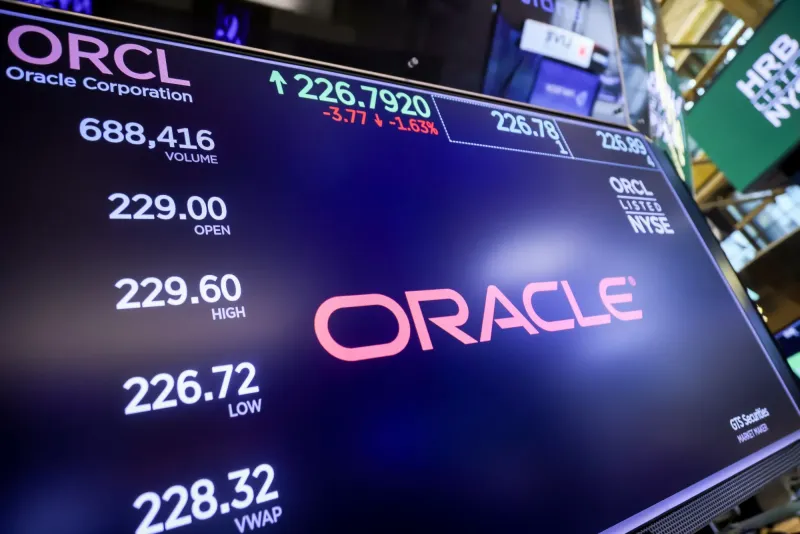The term 'entrepreneurship' is used so often in the present day. In reality, the vast majority of people aren't entrepreneurs – but it almost feels as though everyone aspires to be one. Being immersed in the business world tends to make you forget that, once upon a time, the entrepreneurs were the 'crazy' ones; the people who took unwarranted risks for a nothing income.
.
Not so in 2022. Now, entrepreneurship is a household word. Everyone knows what it means and aspires to achieve it in some capacity, whether you literally start your own business or simply take an entrepreneurial approach to life and business.
.
In today's recap, we'll be focusing on the former; those entrepreneurs who are starting a literal business endeavor.
.Read Also: Top Fintech Trends Of 2022 That Are Transforming Finance
The first steps are always the trickiest. Like a baby deer taking its first leaps and falls, there's a lot of wobbling and uncertainty. But with the right mindset and tools, you can make those first steps less daunting and pave the way for a successful business future.
.
Evan Carmichael, Entrepreneur and YouTube Success Story
Now that entrepreneurs are touted as the courageous success stories they undoubtedly are, we've almost forgotten about the Evan Carmichaels of the world – the guys and gals who forged ahead into the entrepreneurial space before it was cool to do so. Evan was a recent guest on my podcast, and in our interview, we reflected on the early days of his entrepreneurial journey.
.
Evan Carmichael is an entrepreneur, author, and prolific YouTuber. At just 19 years old, he built and then sold a biotech software company. At 22, he was a venture capitalist raising $500k to $15M. He now runs a YouTube channel for entrepreneurs with 3.5 million subscribers, he's written four books, and he speaks globally.
.
As Evan consistently reminded me, however, the road was long to get here – and there was plenty of resistance to deal with in the beginning.
.
“I didn't know anybody who was an entrepreneur; you kind of had to be a little crazy, basically unemployable to be an entrepreneur. But I had a lot of entrepreneurial tendencies. I was selling baseball cards and doing garage sales and all that kind of fun stuff.”
.
Evan started his entrepreneurial career with a business partner in biotech software. Despite the incredibly low income that accompanied the opportunity, he chose uncertainty over a dream job offer from Merrill Lynch.
.
“That was the toughest decision of my life, Scott. I got the chance to go work at Merrill Lynch, my dream job; get paid six figures, travel around the world doing deals, or have three hundred bucks a month and 30 percent ownership in this startup.”
.
It's a conundrum that tends to throw many self-starters off their course – the appeal of certainty, consistency, and a regular income. But for Evan, the allure of entrepreneurship was simply too strong to ignore.
.
“I didn't want to live with the regret of not knowing. And so I told myself, even if it didn't work out, at least I would know. When life is over, and you're finished, and you look back on your life, you're gonna regret not knowing."
.
The road was anything but straight, as you'll hear later on. But this was the pivotal moment in which Evan decided to value experience and learning over a regular paycheck – and to take the plunge into entrepreneurship.
.
Why Do So Many Startups Fail?
I've spoken to an incredible number of thought and business entrepreneurs in my time as host of the Success Story podcast. Through hundreds of conversations with brilliant minds, I can say with confidence that one of the big differentiators between successful and unsuccessful entrepreneurs is mindset.
.
Why? Because no matter how intelligent and experienced you are, being an entrepreneur is taking a massive leap on unbeatable odds. We know that 90 percent of startups fail; 10 percent in their first year, and then another 80 percent in the years to follow.
.
There's a common thread that weaves its way through every successful entrepreneur I've had the pleasure of meeting. These people know their purpose; they are so incredibly strong in their vision that they can't be shaken, no matter how many times they're told "no." They also have an unwavering belief in themselves and their team, which allows them to face any obstacle head-on.
.
Evan Believes We're Built to Serve
.
Unsurprisingly, Evan's purpose and passion behind his work as a YouTube thought leader for entrepreneurs is an inspiring one.
.
“I'm a big believer that your purpose comes from your pain; that whatever you struggle the most with as a human is what you want to help other people with. I struggled so much as an entrepreneur myself, so I wanted to make the path easier for other entrepreneurs. It's still what I'm doing 22 years later – trying to help the 19-year-old Evans of the world.”
.
Beneath this specific mission statement is Evan's broader principle that he appears to live by at all costs: he lives to serve. In his work, in his words, and in his actions – serving others is at the forefront.
.
"Every time you take a step up, reach back and help somebody else get to where you're at. Most people are still stuck at zero; most people are stuck just taking the first step. And so they can be inspired by your story. They can learn from you. And knowing that you've been through what they are going through, gives them the hope and the belief that maybe they can get out of the hole they're in."
.
Having the Wrong Mindset
We'll move away from the topic of failure and into some advice in a moment – but I think it's really important to dig deeper into this idea of having the right mindset. More specifically, what does it mean to embody the wrong mindset as an entrepreneur?
.
The Pride-Driven Entrepreneur
.
Many of the people who attempt entrepreneurship are hard-headed by nature; they've got a no-nonsense personality, they're Type A go-getters, and they often have a lot of pride. This isn't necessarily a bad thing, but it can be a major obstacle when they hit their first roadblock.
.
The problem with pride is that it often clouds our judgment and causes us to make irrational decisions. We become inflexible in our thinking and unable to listen to feedback or constructive criticism – both from others and from within ourselves.
.
When we're pride-driven, we become attached to our ideas and our ego gets in the way of our ability to grow. We stop learning and progressing, which are two essential aspects of being an entrepreneur.
.
The Self-Serving Entrepreneur
.
I've said this before and I'll keep repeating it; it's okay to want to make money, and people who aim to drive a profit aren't inherently selfish. However, I would caution against having profit as your reason for starting a business.
.
A profit-first approach can quickly erase any good intentions you may have had when starting your business. Growth, figures, and gains become your sole focus, at the expense of your team, your product, and your customers. You'll quickly find yourself in a race to the bottom, as you try to undercut other businesses and sacrifice quality for quantity.
.
The Fear-Driven Entrepreneur
.
This is the entrepreneur who is crippled by fear. They're afraid to take risks, they're afraid to make mistakes, and they're ultimately paralyzed by their trepidation. This can lead to a lack of action, indecision, and in some cases – quitting altogether.
.
The Fear-Driven Entrepreneur often falls into the trap of self-doubt. They doubt their ability. They doubt their idea. They doubt their team. And ultimately, they doubt themselves.
.
Problem is, being an entrepreneur comes with heightened risk. It tends to propagate a lot of fear in people who are unaccustomed to it. The key is learning how to manage that fear, how to work with it, and how to use it as a motivator.
.
In the beginning stages of your entrepreneurial journey, it's critical to be of right mindset – so what's the better alternative to these three wrong mindsets? Evan walked me through some of the advice he's picked up during his own journey.
.
Taking Your First Steps as the Growth-Minded Entrepreneur
Entrepreneurs are often painfully aware of their terrible odds. The entire industry is a mix of those that flop, those that thrive, and the ones that face the worst entrepreneurial fate – disgrace.
.
Naturally, then, startup founders tend to begin their journey as being incredibly failure-averse. Not only that, but they refuse to even think about the possibility of failure.
.
This, Evan explained, is the total wrong way to go about your first steps as an entrepreneur. You need to embrace failure like it's your inevitable future.
.
“Expect your first interview to suck. Expect your first video to suck, your camera to break, and the sound to not record. You'll be a nervous wreck. Just expect to suck."
.
Pretty hardcore words for a guy who's all about building young entrepreneurs up – but don't misinterpret his words. Expecting to suck actually means allowing yourself to embrace the growth mindset.
.
"It doesn't mean that you suck as a human. It just means that you don't have the skill set yet.”
.
Don't Set Yourself Up To Give Up
.
This is the growth mindset; the realistic approach to entrepreneurship that acknowledges you still have a long way to go and a lot more to learn. If you assume you're already one of the greats, you set yourself up to fail.
.
“You do your first show, and you realize you're not a B-minus here. You're a D-minus. When you go live, you freeze up; you’re a deer in the headlights. And you just realize that you're way worse than you thought you were going to be.”
.
Unfortunately, setting the bar too high for oneself is all-too-common in the entrepreneurial world, as Evan confirmed.
.
“That's where most people quit; they look back and say, ‘This is terrible. I guess I suck at this.’ And then they never keep going. Expect to suck. Again, it means you're amazing as a human because you tried. And if you keep trying and keep improving, you will not suck anymore.”
.
Evan has learned this lesson from experience; he wasn't one of the greats right out of the gate, and in fact, he didn't see the full fruits of his labor until years later.
.
“My first video, in the first year of it being up, had three comments. One was my mom, one was my sister, and one was some random guy. So I didn't hit it big out of the gate; it took five years or something to get the five figures in subscribers.”
.
Maintaining Momentum
.
Evidently, Evan's growth mindset worked in the long-term (his channel now sits at around 3.5 million subs). But I was curious to ask how Evan maintained his motivation and momentum in the years when he wasn't seeing results.
.
His answer was simple: focus on who you're serving, and not on who you aren't serving.
.
"How do you keep going when you're struggling, and failing, and not seeing the results? People ask me this all the time. What kept me going through those days is this: I always focused on who I was serving instead of who I wasn't. Most people will focus on who they're not serving. And that game never ends."
.
Evan's right. When the people we see as 'successful' are the ones reaching hundreds, thousands, and even millions of people, it's easy to focus on all the subscribers we're yet to gain.
“If you were gonna go and give a speech at a library or YMCA or something, and 50 people showed up, you'd be pretty amped. I mean, it's great, right? 50 people showed up to listen to you. But because it's online, we feel like that's nobody and it doesn't matter.”
Focus On Your 50
Evan challenged entrepreneurs to think: what about the 50 subscribers you've got now? What would happen if you gave your undivided attention to serving them? Could it be that, for one or two of those people, you actually have the impact you'd hoped to have?
"For one of those 50 people, your video is a life changing video. The message is having a major impact; not on everybody, but at least one person in those 50. Maybe your words and the way you said them today, with your tone and your story, actually punctured through where other people haven't. They heard your message.”
If you can shift your focus to a glass-half-full perspective, serving the people who are already there and appreciative of your work, you'll be more likely to maintain your motivation and momentum. What's more, the small audience you've got now will lead you to the bigger audience you're hoping for.
“That makes you feel like your work is meaningful. And at the end of the day, we all want to wake up and feel like we're going to do something meaningful.”
Wrap-Up
If you're an entrepreneur who's just starting out, I really want to encourage you in the direction of Evan Carmichael's work. Everything he does is for the purpose of serving entrepreneurs and helping them grow their businesses; he knows exactly what it feels like to start out on rough footing. He's been in the proverbial trenches, and has learned what works.



